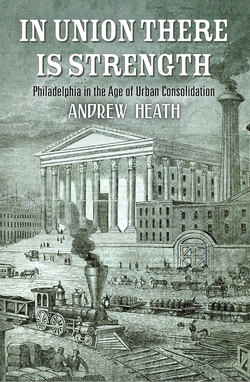In Union There Is Strength

Реклама. ООО «ЛитРес», ИНН: 7719571260.
Оглавление
Andrew Heath. In Union There Is Strength
Отрывок из книги
In Union There Is Strength
Series editors: Brian DeLay, Steven Hahn, Amy Dru Stanley
.....
Exceptionalism proved too strong for all the comparisons to stick, but the borrowing served its purpose. First, using “common referents” narrowed the gulf between the Old World and the New, making Atlantic exchange easier to imagine.47 After Henry Mayhew’s Life and Labor of the London Poor secured an American publisher, one Philadelphia paper concluded that the English capital “is only a type, on a large scale, of our great Atlantic cities,” while a reformer in 1855 found “life among the lowly” was “equally true” in the New World and the Old. Second, the threat of revolutionary violence separated citizens into orderly and disorderly, reminded the economic elite of the danger lurking in the suburbs, and enforced the kind of class discipline the North American would push over the following decade. To sympathize with mobs was to succor Jacobinism.48
Indulgence also threatened the city’s prosperity. Philadelphians were counting the “cost of riots” even before the militia stood down in 1844. Pamphlets published in the months that followed tried to quantify the destruction, with early estimates putting the losses at a minimum of $250,000.49 The burden of paying for the posse and militia fell on the county treasury, while the Catholic diocese sued the city proper for its failure to stop the mob from torching St. Augustine’s, which stood a few yards inside the original corporate boundaries. But the economic consequences of the violence extended far beyond claims for compensation. During the Kensington riots, a New Yorker warned Board of Trade president Thomas Pym Cope that Philadelphia bonds would struggle to find a buyer in Manhattan, while a few days after the Southwark conflagration, a rumor reached him that shipbuilding on the Delaware had come to a halt in the face of demands for an all-native waterfront. Cope worried about the “great injury to our future prosperity.” “Prudent men,” after all, would “be afraid to place capital in manufactories in a place where the populace may at any time lay them waste.”50 A city still suffering from the financial aftershocks of the Panic of 1837 could hardly afford to drive away investors.
.....